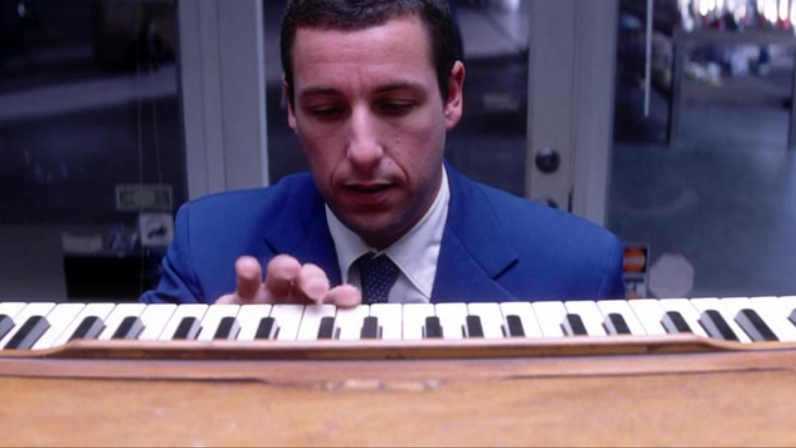
People often associate soundtracks with memorable melodies, resounding cues and grandiose orchestration – Francis Lai’s Love Story theme, Bernard Herrmann’s cue for the shower scene in Psycho, and Max Steiner’s Gone with the End theme are some examples in that order of very famous soundtracks, recognizable even by people who are not knowledgeable in the genre.
What makes a movie score famous? Sometimes the movie itself helps. If a movie gets public or critical recognition, chances are that the soundtrack will follow the same path. Sometimes mediocre movies hide great soundtracks inside them. Other times the soundtrack is relegated to the movie’s background, so it doesn’t get the deserved acknowledgement. Occasionally some movie composers get all the praise for their most famous works, which leaves aside other works different from their trademarks, but yet as brilliant as their celebrated compositions. This list focuses on soundtracks that for the reasons above mentioned are as not as popular as they should be.
20. All About My Mother – Alberto Iglesias
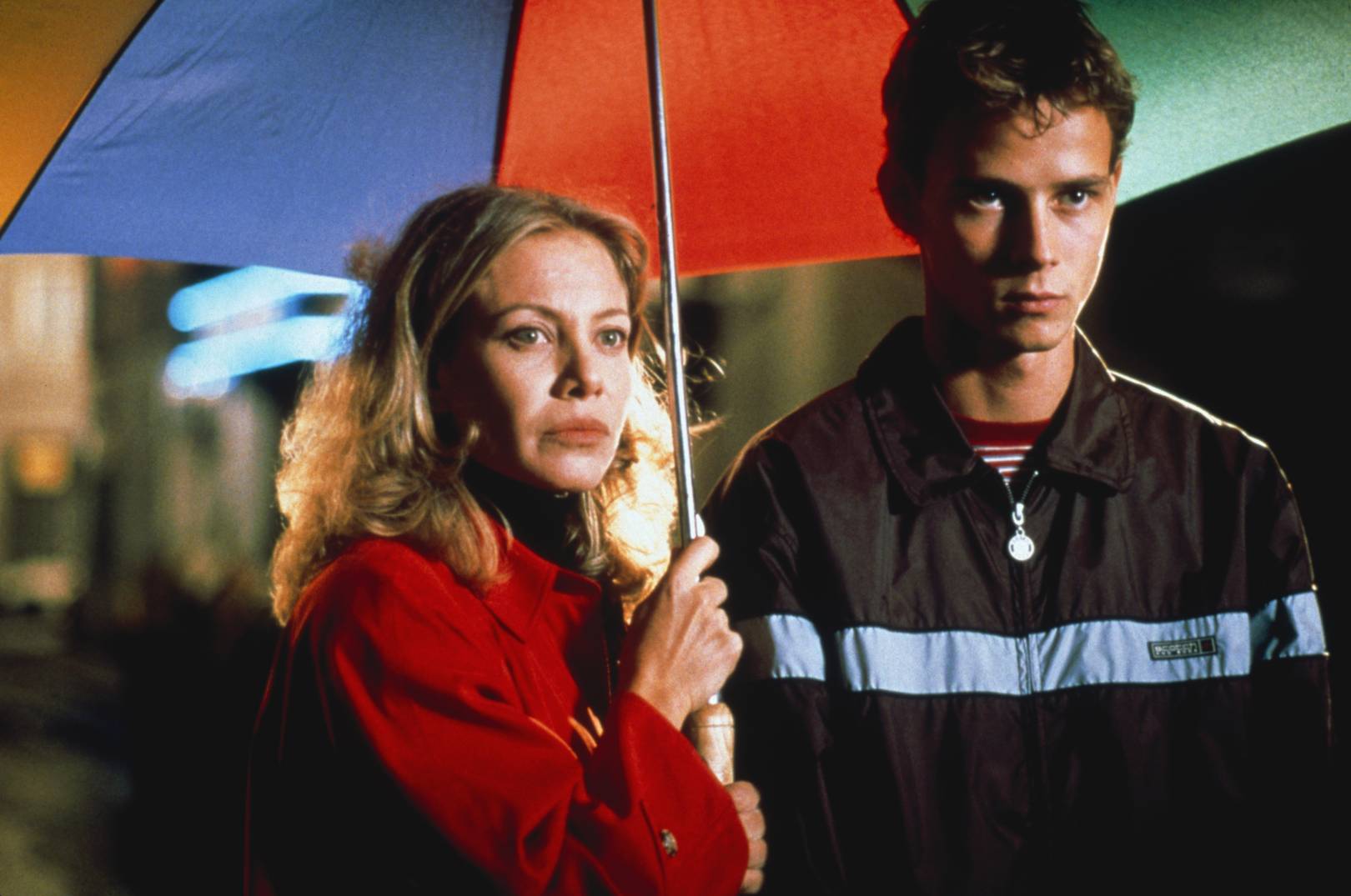
Pedro Almodóvar and Alberto Iglesias have teamed up for many movies since their first collaboration, The Flower of My Secret, in 1995. Iglesias has three Academy Awards nominations – The Constant Gardener, The Kite Runner, and Tinker Tailor Soldier Spy – but one of his best works is this untypical score for Pedro Almodóvar’s All About My Mother. Mixing mute-trumpet phrases that evoke the sadness of Miles Davis’ Ascenseur pour L’Échafaud, beautiful string arrangements, and Astor Piazzolla-esque bandoneon parts, Iglesias could compose a remarking soundtrack, full of beauty and sadness like the movie.
19. Apocalypto – James Horner
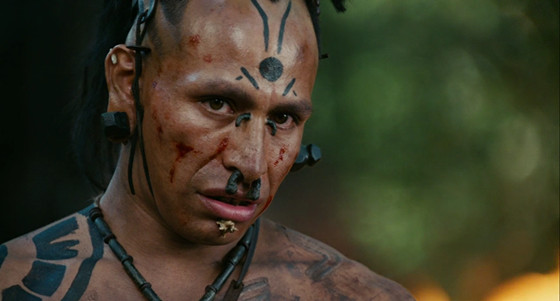
Best known for his work in Titanic and his orchestral scores, James Horner’s soundtrack for Mel Gibson’s Apocalypto is an underrated beautiful score. Using a large collection of exotic instruments, such as the Tromba Marina, Swedish bark trumpets and Ugandan wildebeest horns besides synth pads, Horner could provide a tribalistic and primal feeling to the movie. The highlights are the use of Rahat Fateh Ali Khan as a one-man band voice provider and tracks that combine percussive explosions with bizarre horn squeaks.
18. Under the Skin – Mica Levi
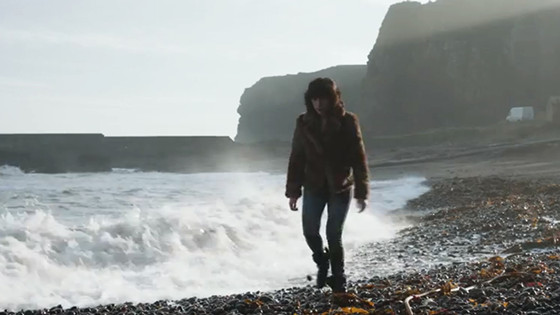
Under the Skin soundtrack is a masterpiece on the art of displaying human feelings through the lenses of an inhuman creature. Mica Levi could create a soundtrack that sounds organic and robotic, just like Scarlett Johansson’s character in the movie. Inspired by avant-garde composers such as John Cage, Giacinto Scelsi, and Iannis Xenakis, Disney movies’ music and Dr. Dre, she could compose a groundbreaking masterpiece on her first score. Regarding unsettling music in movies, Under the Skin is in the same league as Stanley Kubrick’s selection of Penderecki and Ligeti for The Shining,
17. Tron – Wendy Carlos

Tron was a futuristic project made by Disney that revolutionized computer animation in movies. The film was a major flop during its release, but it slowly gained a cult status and many followers around the world. Nowadays its visual technical innovations seem outdated and uncouth, but the soundtrack still sounds good and visionary. The combination between synthesizers and orchestral music makes this soundtrack a great achievement in movie scoring, influencing many movie scores after.
16. The Ghost Writer – Alexandre Desplat
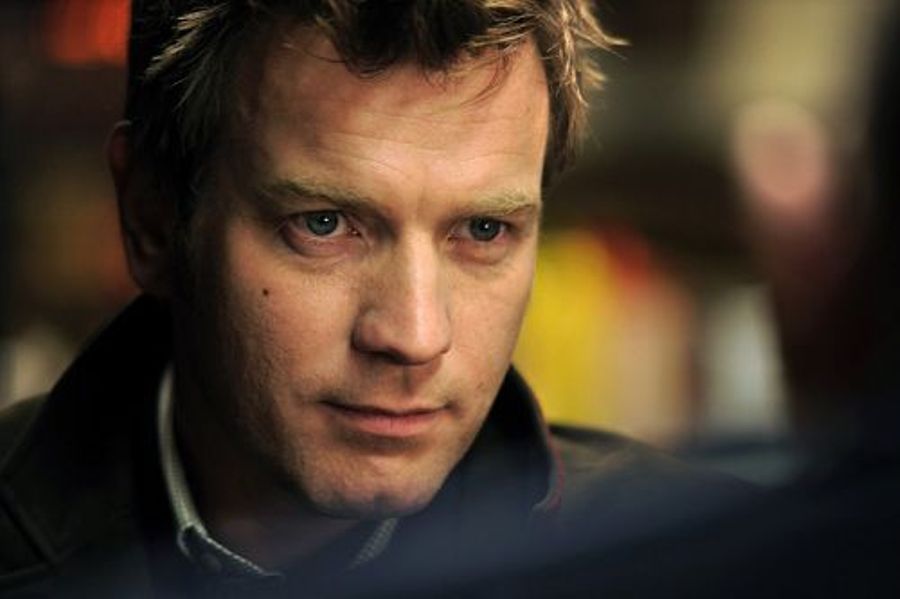
For this Hitchcock-esque thriller, the French composer Alexandre Desplat composed a score with a lot of influence from Bernard Herrmann Herrmann influence, mixed with Shostakovich and Philip Glass. Desplat is a successful and prolific movie composer with eleven nominations for Academy Awards. He usually resorts to sentimentality and melodies, which is not the case in The Ghost Writer.
Anxious bass clarinet ostinatos, scary fog horn melodies that refer to the sea in the movie, and electrifying percussion crescendo build until it releases tension on the title track. The whole score has a permanent feeling of apprehensiveness, as if someone is always lurking behind. There are many Herrmann-esque cues, but Desplat also puts his own imprint in many moments, using one of his specialties: beautiful counterpoints.
15. The Secretary – Angelo Badalamenti
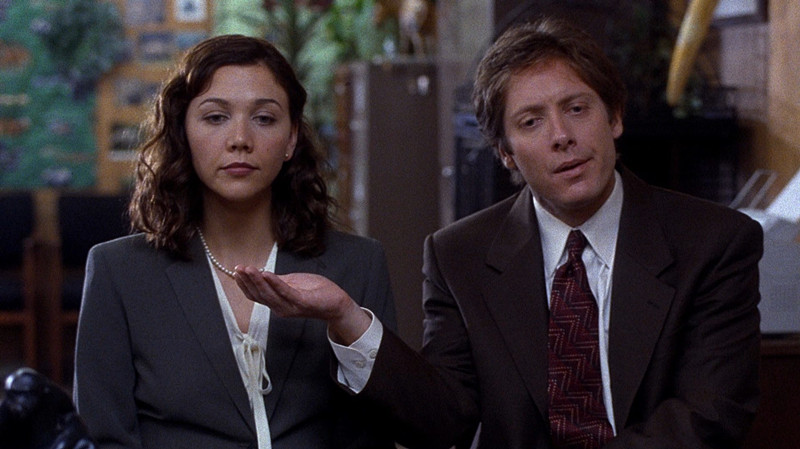
The Little Italy composer is most famous for his works for David Lynch. His creepy soundtracks, using dark jazz and minimalist ambience, had contributed a lot to Lynch’s movies like Blue Velvet, Twin Peaks and Mulholland Drive. But in this sadomasochist tale by director Steven Shainberg, Badalamenti’s music differs greatly from his traditional scope.
Whereas Badalamenti’s music adds up a lot of tension and darkness to Lynch’s movies, here it is used to make things softer, as if the images on screen were already strong enough. The soundtrack works as a perfect background for the submission-dominance story of the movie, evoking also the tragedy and joy of Lee’s and Dr. Grey’s relationship.
14. The Birds – Oskar Sala
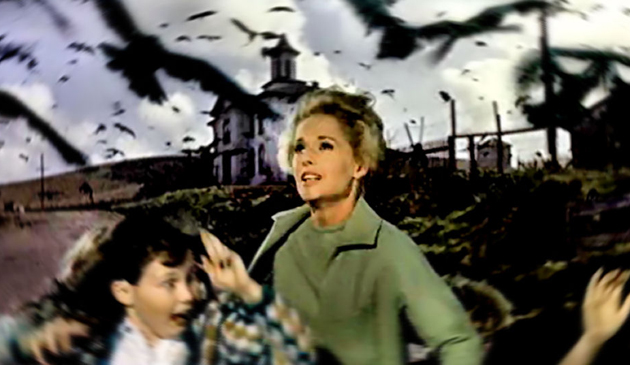
For his 1963 thriller about bird attacks, Alfred Hitchcock decided to not use any incidental music. Instead, he hired German electronic pioneer Oskar Sala to provide sound effects for bird calls and noises. The composer used an instrument developed by him and Friederich Trautwein called Mixtur-Trautonium, a predecessor of the modern synthesizer.
The sounds produced by the Mixtur-Trautonium are generated by saw-tooth oscillations of low-voltage neon lamps and can be varied with filters. It is an innovative soundtrack – precursor of many modern film scores that are filled with synthesizers, noises and electrical devices to explore sonorous and musical possibilities – and also strangely scary, it is almost impossible to notice that the birds violent squeaks are produced by an electrical device and not by a flock of angry birds.
13. Blow Out – Pino Donaggio
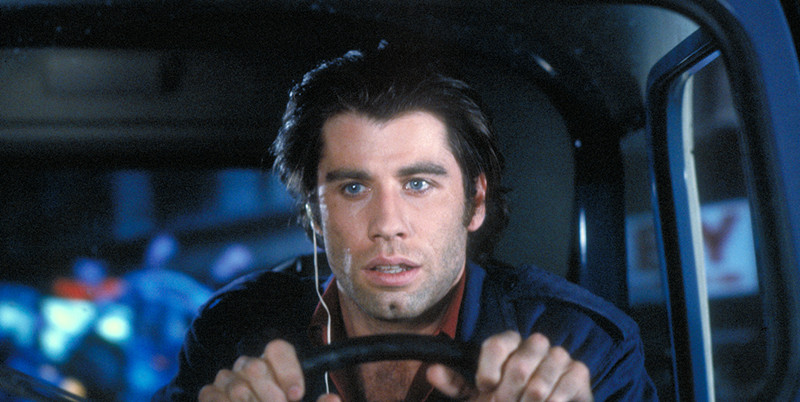
Brian De Palma’s homage to Michelangelo Antonioni’s Blow Up was a major box office and critical flop but the movie is a great thriller about corruption and the art of cinema. Pino Donaggio had previously made two notorious scores for De Palma, Carrie and Dressed to Kill. Blow Out is on the same level as them, although not celebrated equally.
There are Pino Donaggio’s trademarks – the theme is a strikingly beautiful melody that repeats itself during different moments in the score with different arrangements – and thrilling moments, funky cues, and guitar driven instrumental pieces. The result is an eclectic soundtrack, embracing different genres and arrangements, without losing its unity and cohesiveness.
12. Punch-Drunk Love – Jon Brion

“I think what you actually want is the thing to feel like a musical, but nobody ever breaks into song,” Jon Brion told director PT Anderson when they were discussing the movie soundtrack. “Exactly!” the director said back to Brion. So then they made Punch-Drunk Love the ultimate anti-musical movie. This sardonic approach is seen throughout the whole movie, as if music and visuals were falsely leading the audience into the conception that the movie is a type of musical or romantic comedy.
Jon Brion is one of the most underrated soundtrack composers and Punch-Drunk Love can be considered his magnum opus. There are disturbing percussive moments that express the turmoil inside Adam Sandler’s character, Hawaiian melodies, cynical doo wop songs, easy listening cues- but the highlight is Overture, a track that mixes avant-garde noises, sad harmonium melodies, beautiful classical arrangements, jazzy interludes and the Punch-Drunk Love Theme, a beautiful melody that resembles Nino Rota’s Amarcord theme.
11. Kwaidan – Toru Takemitsu
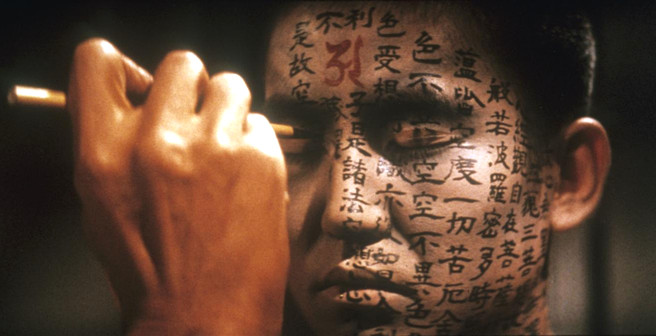
“I wanted to create an atmosphere of terror. But if the music is constantly saying, “Watch out! Be scared!” then all the tension is lost. It’s like sneaking up behind someone to scare them. First, you have to be silent.”
Toru Takemitsu’s own description of his music for the Japanese horror Kwaidan emphasizes the importance of silence in the score. Differently from his more popular works of film music – which embody classical grandiloquence and beauty – the Japanese composer used silence and wood noises to provide the terrifying atmosphere for Kwaidan. Without his music, Kwaidan would be an excessively beautiful movie incapable of scaring anyone. Combining the Japanese folkloric instrument biwa, wood noises and silence, Takemitsu could create a groundbreaking masterpiece.